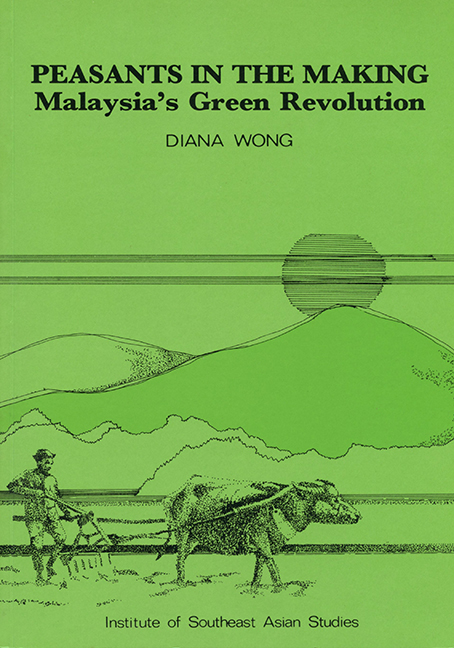Book contents
- Frontmatter
- Contents
- Acknowledgements
- Part I The Framing of the Study
- Part II The Anatomy of the Village
- Part III The Transformation of the Village Economy
- Part IV The Transformation of Village Society: The Unfolding of Social Differentiation
- Chapter 11 Kinship and the Family Development Cycle
- Chapter 12 The Village as a Community
- Chapter 13 The Pattern of Leadership: From Patron to Broker
- Part V Conclusion
- Appendix I Research Methodology
- Appendix II Questionnaire
- Bibliography
- THE AUTHOR
Chapter 13 - The Pattern of Leadership: From Patron to Broker
from Part IV - The Transformation of Village Society: The Unfolding of Social Differentiation
Published online by Cambridge University Press: 21 October 2015
- Frontmatter
- Contents
- Acknowledgements
- Part I The Framing of the Study
- Part II The Anatomy of the Village
- Part III The Transformation of the Village Economy
- Part IV The Transformation of Village Society: The Unfolding of Social Differentiation
- Chapter 11 Kinship and the Family Development Cycle
- Chapter 12 The Village as a Community
- Chapter 13 The Pattern of Leadership: From Patron to Broker
- Part V Conclusion
- Appendix I Research Methodology
- Appendix II Questionnaire
- Bibliography
- THE AUTHOR
Summary
INTRODUCTION
In this final chapter on the social structure of the village, focus will be on one formal institutionalization of a dyadic relationship which has drawn considerable attention in peasant studies namely, the patron-client relationship. At the very outset though, it should be stressed that Shamsul Amri's critique of this concept is well taken and entirely reflective of the methodological intention of its use in this chapter:
As an organising concept, the patron-client model enables us to identify actual interactions and alignments, whatever they may be, in peasant societies. To a great extent, it becomes a necessary preliminary step before proceeding to the next step of analysis, because the model allows us to classify at the actor's level, reasons for the observed interaction and alignments … However, as a theoretical proposition and generalisation about the mode of organisation, and politics, in peasant societies, the adequacy of the model must be questioned. For instance, I question the theoretical validity of the “social gap” thesis, which is central to the conventional model, as a casual explanation of the need for and the emergence of a patron, and hence, the formation and functions of the patron-client relationship.
Thus, it seems that it is a resource gap rather than a social one which is being bridged, one that can arise both from within the village itself as well as in its articulation with the larger societal whole. Disposal over personal resources defines the patron in the following analysis, while the broker is taken to be one who disposes over resources derived from an external source. While patronage is an asymmetrical and exploitative relationship, “it is frequently articulated in cultural terms or ideas with an underlying ‘moral component’.”
One implication of broker-based clientelism however, is that the stability of the relationship can no longer be guaranteed. The broker, dependent himself on rather arbitrary forces outside of the village, loses his power of patronage once he loses their favour.
- Type
- Chapter
- Information
- Peasants in the MakingMalaysia's Green Revolution, pp. 197 - 206Publisher: ISEAS–Yusof Ishak InstitutePrint publication year: 1987



